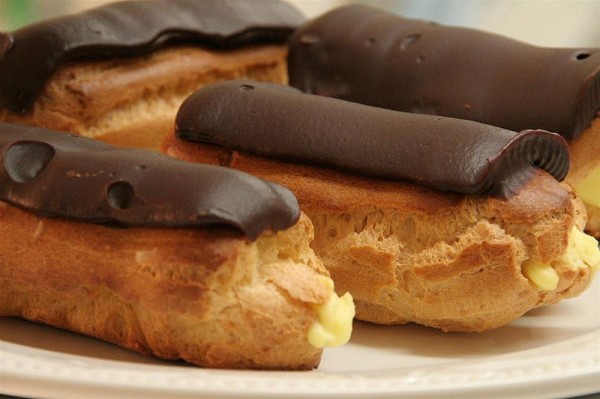
In last week’s Torah portion we were introduced to the future Tabernacle builders: Bezalel, Ohaliab and the wise men . Unfortunately, the construction of the Tabernacle and the Ark of the Covenant was postponed when the Jewish people decided to move drastically off the path, constructing a Golden Calf for worship instead. Moses and the Levites took care of that problem at the end of the portion, destroying the calf and putting all the idolaters to death. Harsh, I know. There is good news though, this week in Vayekhel, we’re back on track, all that work we’ve been talking about for weeks is finally starting.
In the modern world, the decision to start a massive construction project is often followed by a complex search for someone to build it. Often contractors bid on the job, and one of them is usually chosen based upon their skill relative to their price. Connections help too, especially if you live in New Jersey where the job will probably go to the person with the best… affiliations. The Jews, having just left Egypt after years of slavery were probably all experts at building things; they did build the pyramids, right? There was likely quite a few solid candidates for the building of the Tabernacle. Yet, we aren’t told of a complex series of people volunteering for the job, or Moses interviewing them before picking the right candidate. God just tells Moses, Bezalel will be my builder. What is it that makes this man Bezalel the perfect choice?
Bezalel was known to be a man of wisdom. According to legend, he even challenged Moses on the order of building the Tabernacle and won. He may also have been a man of great faith, hinted at in the meaning of his name, “in the shadow of God.” We aren’t given any evidence of this until now,. as a matter of fact, Bezalel isn’t even mentioned until the building of the Tabernacle. What’s special about Bezalel isn’t something that is known to the world, and even Moses had to be told of Bezalel. His faith and wisdom are in the shadows, held within. Yet, God knows and is aware of Bezalel’s greatness, and thus chooses him for the honor building the Tabernacle.
Today, the person we are on the inside doesn’t always seem to be important. We judge each other from physical appearances, and make decisions such as who to hire based upon outward accomplishments. How others see us is the most important thing. In a world where expressions like “Goody Two-shoes” and “nice guys finish last” are common, often the good person inside us is left hidden in the shadows. Living this way, dishonest to who we are and feeling hidden from the rest of the world, can be frustrating. The text provides us comfort, showing that the best parts of us—what’s inside of us—does indeed matter. We need to buck up, to not allow our spirits be drowned in a world of appearances.
Even if we can keep up our spirits, staying true to ourselves, we can still feel frustrated and held down. That’s where our second character comes in, Oholiab. When Oholiab was first introduced, he was shown as Bezalel’s helper. His position was subordinate, he was an assistant. In this week’s portion, the text changes its tone, saying “both him and Oholiab.” This little change in language points to a big difference in the relationship between Bezalel and Oholiab. They are now equals. What was it that brought this drastic change around? According to everyone’s go-to commentator, Rashi, Ohaliab’s tribe, Dan, is one of the lowliest tribes, yet he now stands beside a man from the strongest tribe, Judah. Bezalel was the great-grandson of Miriam, he likely had a lot of support in his upbringing. For Oholiab, the situation was likely different, he did not have the quality upbringing Bezalel had, yet he still manages to raise himself to a level that earned him the position of Bezalel’s assistant.
However, something changed when he was named to that position, and when the time came to build the Tabernacle he was equal to Bezalel. When Oholiab was picked out from his lowly position, he finally felt appreciated. The goodness in him that had been ignored for so long was finally noticed. This released him, and inspired him to reach even higher heights, eventually bringing him to a point where he could stand beside Bezalel.
Everybody has a need to feel appreciated, to experience that release from being misunderstood and feeling hidden away, and God shouldn’t be the only one making them feel this way. If we want to make a difference in the world, we can show others we want to understand them. It isn’t as simple as saying “thank you”, it requires something a little more– empathy. Empathy is something we can build within ourselves. Sit down and listen to your friends, try to understand them without judging them. You’ll find the beauty within their hearts; a beauty that you can appreciate. When you do this, when you embrace who they are inside, you are also encouraging them to embrace who they are. Those around you will become better people, feeling appreciated, and will hopefully even return the love. When everyone learns to appreciate one another, we may find a world full of Oholiabs, people who are driven to develop and express their inner beauty.
David Gutbezahl is a student at Gratz College.

